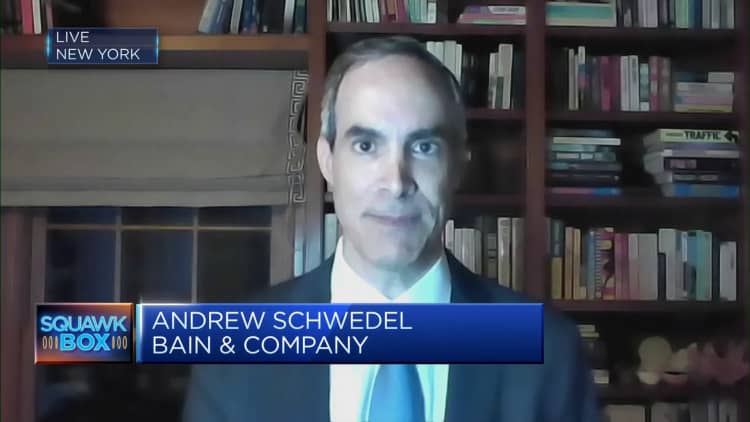The job market is cooling. Though it remains strong — and workers still have leverage — their power doesn't seem to be as broad based as it was earlier in the pandemic, say labor experts.
These days, whether employees still enjoy considerable leverage — to find a new job or get a raise, for example — "depends on what industry workers are in," said Daniel Zhao, lead economist at career site Glassdoor.
"That's a different response than might have been given in 2021 or 2022, when the market seemed to be hot all over the place," Zhao said.
More from Personal Finance:
A.I. is on a collision course with white-collar, high-paid jobs
Big Four firm is trying to get teens interested in accounting
Disclosing a disability in the workplace
Job openings surged to historic highs as the U.S. economy started to reopen after a pandemic-era lull. Americans, buoyed by their job prospects, also quit their jobs at a record pace, a trend that came to be known as the "great resignation." Wage growth surged at the fastest rate in decades amid stiff competition for labor; layoffs dropped to historic lows.
Put simply: Workers across the economy enjoyed unprecedented job security.
Evidence suggests that dynamic is gradually easing.
Job openings fell slightly in June to about 9.6 million — still well above historical norms but down from the peak of more than 12 million in March 2022, according to the monthly Job Openings and Labor Turnover Survey issued Tuesday.

The "quits" rate — the number of people quitting in June as a share of total employment — is hovering near its pre-pandemic level. And the rate of hiring among employers declined in June to 3.8%, roughly in line with pre-pandemic levels, according to the JOLTS report.
"The JOLTS data are consistent with further immaculate cooling of the labor market," wrote Jason Furman, an economist at Harvard University and former chair of the White House Council of Economic Advisers during the Obama administration.
The Federal Reserve has raised borrowing costs aggressively — with the aim of slowing the economy and inflation — and banks have tightened lending, all of which ultimately affect the job market.
Conditions have 'normalized substantially'
Though conditions have "normalized substantially" since the great resignation's peak from mid-2021 to mid-2022, 8% more employees are quitting their jobs each month than before the pandemic, and layoffs remain 22% lower, said Julia Pollak, chief economist at ZipRecruiter.
Now, worker leverage is more industry specific, economists said.
For example, the finance and insurance sector in June saw job openings below their pre-pandemic level in February 2020.
Conversely, "arts, entertainment and recreation" saw record low layoffs and record high quits, Pollak said.
"Workers are in high demand across the sector as Americans flood back to concerts, baseball games and movie theaters," Pollak wrote. "Quits in the industry hit an all-time high, and workers found it easier to switch into better jobs."
Job openings across state and local government are also at all-time highs, suggesting municipalities "are now on a hiring spree" now that competition for workers is a bit less intense in the private sector, she said.
"Certain industries are still very hot," Zhao said. "It's more important for job seekers to understand what's going on in their industry than it might have been a year or two ago."


